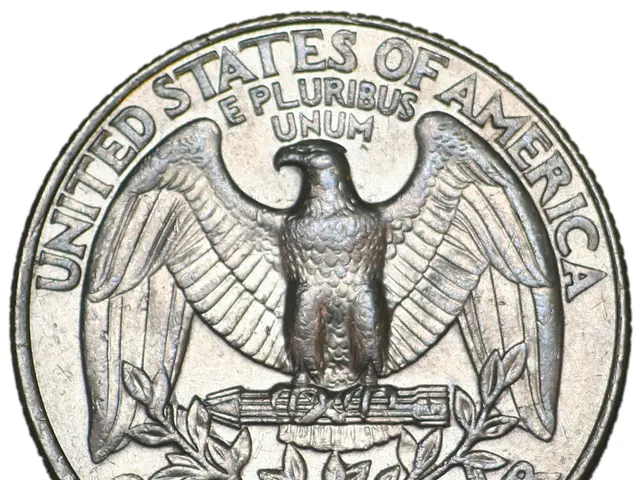Managing Trump Demonstrated by Mexico's Sheinbaum: Insight from Our CEO's Point of View
Mexico has managed to largely avoid heavy tariffs imposed by the Trump administration, with most of its goods complying with the rules of origin under the 2020 United States-Mexico-Canada Agreement (USMCA). This trade pact, negotiated during Trump's first term, exempts USMCA-compliant goods from the tariffs that were otherwise broadly applied to imports from other countries.
The key points explaining Mexico's relative tariff exemption include USMCA compliance, ongoing diplomatic engagement, and selective tariff enforcement designed to leverage domestic content rules. Mexico benefits because a significant proportion of its exports meet these criteria, and the U.S. and Mexico have maintained a "mutual respect" relationship in trade matters, with continued negotiations postponing or moderating tariff impositions on Mexican products.
However, the U.S. has been on the offensive against Mexico, accusing Sheinbaum's administration of having an intolerable alliance with cartels, being afraid of the cartels, and being unwilling to do anything significant against them. Trump could change his mind about Mexico at any moment.
Claudia Sheinbaum, the first female and Jewish president of Mexico, inherited a nearly zero-growth economy, increasing debt loads, high inflation, and a strong currency. To address these challenges, Sheinbaum has had to make important funding decisions on her predecessors' expensive pet projects like the Maya Train, the Dos Bocas oil refinery, and the rapidly growing federal Bienestar welfare program.
Sheinbaum's administration has also taken steps to curb the flow of Chinese investments and goods into the country, raising tax rates on small-value packages from Shein and Temu, not encouraging investment of Chinese auto suppliers given the sensitivity of the U.S. administration, and cracking down on Chinese counterfeit goods.
In terms of cartel activity, Sheinbaum has deployed 10,000 troops to the border, sent 29 cartel leaders to the U.S. for trial, and dismantled or destroyed more than 1,000 drug labs. She has emphasized the steps her government has taken to reduce fentanyl trafficking to the U.S., help stem the flow of immigrants at the border, and crack down on cartel activity.
Despite the ongoing challenges, Sheinbaum's most recent approval rating is 80%, a testament to her administration's progress in addressing these issues. However, she has had to de-escalate situations involving U.S. military targets on cartels, as Trump ordered the military to target cartels but Sheinbaum chose a different approach.
Travis Bembenek, the CEO of Mexico News Daily and a long-time resident of Mexico, observes that Mexico's relationship with the U.S. is complex and multifaceted. While Mexico has been accused of ripping off the U.S. in everything from tomatoes to steel, Sheinbaum has won Trump's respect by appeasing him and demonstrating progress in cartel violence and drug trafficking.
ICE officials have rounded up Mexican citizens in the U.S. and sent them to detention centers, with some being sent to a U.S. military base in Djibouti or the Alligator Alcatraz detention center in Florida. This issue adds another layer of complexity to the U.S.-Mexico relationship, and it remains to be seen how it will evolve under the Biden administration.
References:
- USMCA: How Mexico Avoided the Trump Tariffs
- Mexico Manages to Avoid Trump's Tariffs
- Mexico's Tariff Exemptions Under USMCA
- USMCA and Tariff Enforcement
- Mexico's USMCA Compliance and Tariff Benefits
- The United States' tariffs on imports were largely avoided by Mexico due to its compliance with the rules of origin under the 2020 United States-Mexico-Canada Agreement (USMCA).
- The USMCA, negotiated during Trump's first term, exempted USMCA-compliant goods from tariffs that were otherwise broadly applied to imports from other countries.
- Ongoing diplomatic engagement, selective tariff enforcement, and USMCA compliance are key points explaining Mexico's relative tariff exemption.
- The U.S. has accused Sheinbaum's administration of having an intolerable alliance with cartels, being afraid of the cartels, and being unwilling to do anything significant against them.
- Sheinbaum's administration has taken steps to reduce cartel activity, such as deploying 10,000 troops to the border, sending 29 cartel leaders to the U.S. for trial, and dismantling over 1,000 drug labs.
- General news outlets like Mexico News Daily report on the complex and multifaceted relationship between Mexico and the U.S., including issues related to politics, war-and-conflicts, crime-and-justice, and policy-and-legislation.
- The economic relationship between the U.S. and Mexico is influenced by factors such as business, finance, history, and leadership, with the outcome being closely monitored for its potential impact on the economy and finance sectors of both countries.





